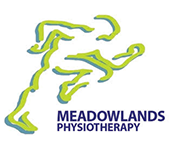Menopause and Pelvic Health – What You Need to Know
For many women, talking about menopause is like wearing a bikini — the older you are the less you want to do it. But like most things in life the more you know, the better the experience will be. The truth is, your quality of life hangs in the balance.
How are Menopause and Pelvic Health Linked?
As you age your pelvis and every muscle in it gets weaker and thinner. Sometimes this is due to less activity, but for perimenopausal and menopausal women, there’s also a hormone responsible for this: estrogen.
Ever since puberty, estrogen has taken care of you. It has regulated muscle growth and maintenance, bone density, body weight, energy, and vaginal lubrication. But, in perimenopause your body slows down estrogen production, and it reaches new lows once you hit menopause.
This leaves your muscles weaker, your bones and tissues (including your urethra) thinner, and your vagina drier. Your whole pelvis is impacted and this can cause you significant discomfort.
Pelvic Issues
As your estrogen declines, issues you’ve had in the past will become worse, or whole new issues will develop, including:
- Urinary leakage
- Difficult urinating
- Bowel incontinence
- Painful lower back
- Frequent urinary tract infections
- Pelvic organ prolapses (when your uterus, bladder, or other organ falls inward)
- Painful intercourse (dyspareunia)
Have you experienced painful intercourse? You are not alone! Dyspareunia is a very common and distressing side effect of menopause – the result of several possible culprits, including declining estrogen production and vestibulodynia, a chronic pain syndrome that causes discomfort with any touch or pressure in the vaginal area. This common problem can affect sexual desire and pleasure and cause emotional distress. The good news is that these conditions are very treatable. Pelvic floor physical therapy can relax and stretch tightened muscles and strengthen the pelvic floor area.
Are these issues a result of having children? It doesn’t matter whether you’ve had children or not, any woman can experience these problems and each of these pelvic issues can reduce your quality of life.
When you first start to experience these changes, you may be embarrassed to talk about it. But, there are things you can do to mitigate the effects.
In the past, estrogen has kept your muscles relaxed and strong. Now, you need to step in and give your body some extra support. Here’s how:
Support Pelvic Health to Prevent and Relieve Issues
How do you support your pelvic health through menopause? Strengthening your muscles is one way. Stronger muscles will provide support to your pelvic organs, keeping everything in place and working well. Exercise can also help you lose weight, which will relieve pressure on your pelvis and help it stay healthy.
Relaxing your muscles is another way to encourage pelvic health. Sometimes increasing your exercise regime while you have tense or inflexible muscles (or even more serious conditions) can do more harm than good. You can further dislodge prolapsed organs, put strain on weakened muscles, or increase back pain by over-working already stressed muscles. In this case, you can benefit from massage or other techniques meant to relax stiff muscles.
Set Personal Goals
So, what should be your top priority? Increasing strength, flexibility, relaxation, or losing weight? A physiotherapist can help you identify what your primary goals should be, based on your personal circumstances. A physiotherapist can also help you achieve your goals safely, with specific techniques and exercises perfectly tailored to you. Contact Meadowlands Physiotherapy today to get tailored advice from our experienced physiotherapists on which exercises will help you improve your pelvic health.

